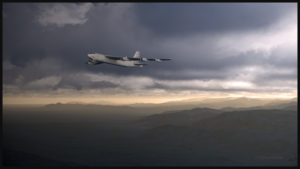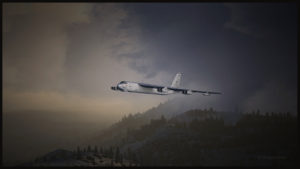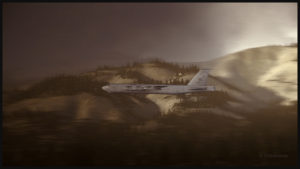Here are a few modified screen captures of a recent virtual flight made with the Captain Sim’s B-52.
The high quality of the modelized clouds and of the landscape in the background helped create screen captures that were even more realistic. FSX was the flight simulation platform used for the flight. REX Simulations made the virtual cloud textures.
The landscape is a creation of ORBX. At the base of the three screen captures were the following ORBX products: FTX Global Base Pack, FTX Global Vector, FTX Global Open LC North America, FTX Global Trees HD and NA Southern California. The time for the flight was early in the morning.
In the picture below, a few modifications were made using Photoshop to induce a feeling of speed. When comes the time to modify the screen capture of a virtual aircraft with an image editing software, the same rules apply as for a normal picture: moderation gives better results.
The sound of the Boeing B-52’s eight engines is quite impressive. Despite the enormous power available for take-off, the flight simulation enthousiast cannot simply apply full power and hope that the military jet will get airborne. By the book procedures have to be followed, otherwise there won’t be any take-off. A parachute can be deployed when landing for a better visual effect, but the flight simulator will not include it in its calculations for the required landing and breaking distance.


